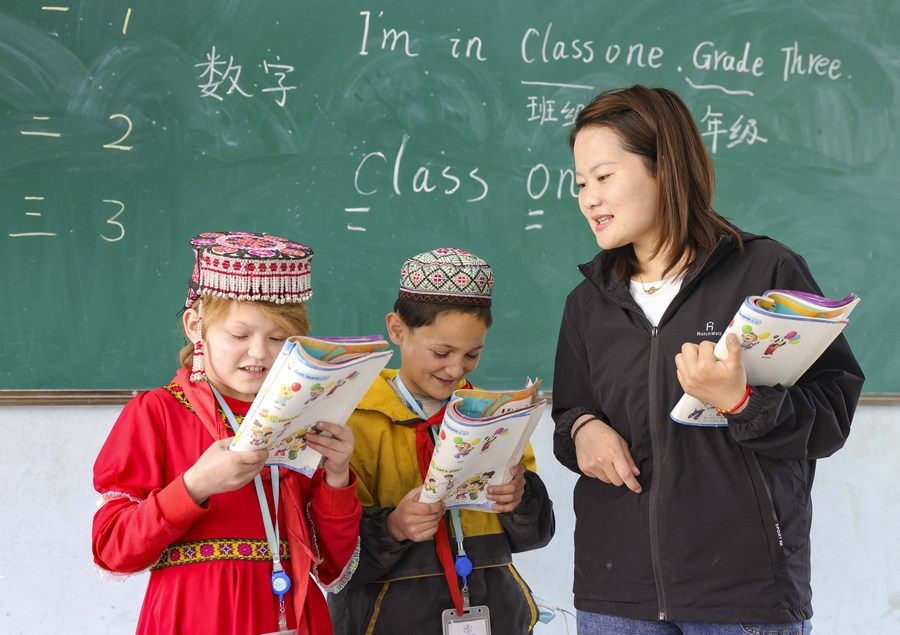Rural opportunities improve but challenges remain
By ZOU SHUO | CHINA DAILY | Updated: 2021-07-26 14:44

Despite progress in recent years, there is still much room for improvement in rural English education if it is to meet China's development demands, English-language experts and educators said.
English education in rural areas has seen significant improvement thanks to substantial government investment and policy support, but there remains a large gap between rural and urban areas in English-language education, they said at the 2021 Global English Education China Assembly in Hangzhou, Zhejiang province.
Luo Lianggong, dean of the School of Foreign Languages at Central China Normal University, said rural schools now have more foreign-language teachers, more access to teaching resources, better equipment and more opportunities for career development.
However, there is still a serious shortage of high-quality foreign-language teachers in rural schools and they have limited free time as they usually need to teach different classes, he said.
Rural English teachers are comparatively less well trained in using technology and teaching resources, and there is a lack of training and further education targeted at solving problems in their teaching practice, Luo said.
"We might see a bigger gap between rural and urban areas in foreign-language education as there has been unprecedented investment in developed areas to attract teachers graduating from top universities," he added.
Xiang Zongping, associate English education professor at Central China Normal University, said great improvement has been made in equipping rural schools with technology-both hardware and internet connections-and rural teachers believe that using technology enhances learning, improves students' participation and encourages collaboration.
"The old type of digital divide, between the haves and the have-nots, is narrowing," she said. However, there were still significant differences in the use of technology in lesson planning, teaching and assessment, Xiang said.
The urban-rural gap in technology use for English education is also likely to widen if the perceived benefits of technology are not realized, she said.
Technology can play an important role, yet to teach more effectively, rural English teachers need pedagogical skills and new concepts of teaching and learning in addition to access to technology, Xiang said.
"It is not what you think technology can do, but what you actually do with technology that can lead to real change in learning," she said. "And it is not technology that makes the difference, but who uses it and what it is used for."
Zhu Shenhai, an English-language associate professor at Guangxi Normal University, said many rural students are left-behind children whose parents work in cities, and they lack care and can be sensitive and weak-willed.
Some might also lack interest in learning because if they fail in their studies, they can always follow family elders and learn a trade or craft to make a living, he said.
Teachers need to avoid head-on confrontations with sensitive students, be patient, show positive emotions to the students and teach with deep care, he added.
Su Lingling, an English teacher at a rural school in Luxi county, Hunan province, said thanks to strong government support, rural schools have similar equipment to urban schools, and rural teachers have also seen their salaries improve, along with their chances of getting higher professional titles.
However, she said the gap between rural and urban students might widen because rural parents do not attach enough importance to their children's education.
Most of the students in her class are left-behind children and many lack care from their parents and are often spoiled by their grandparents, she said.
The popularity of mobile phones among rural students also seriously hinders study, she said. Although they are forbidden from bringing cellphones to class, once they return home their use of the devices is often unchecked and they spend too much time playing games, Su said.
"The government and game developers must put restrictions on game playing for children so they do not waste too much time on it," she said.
























